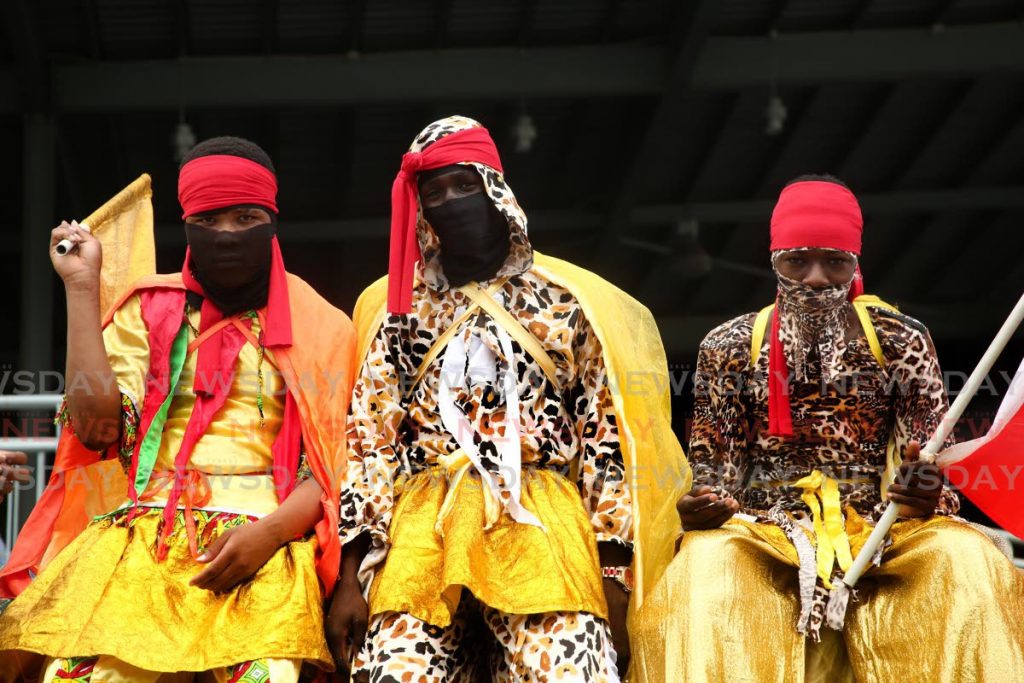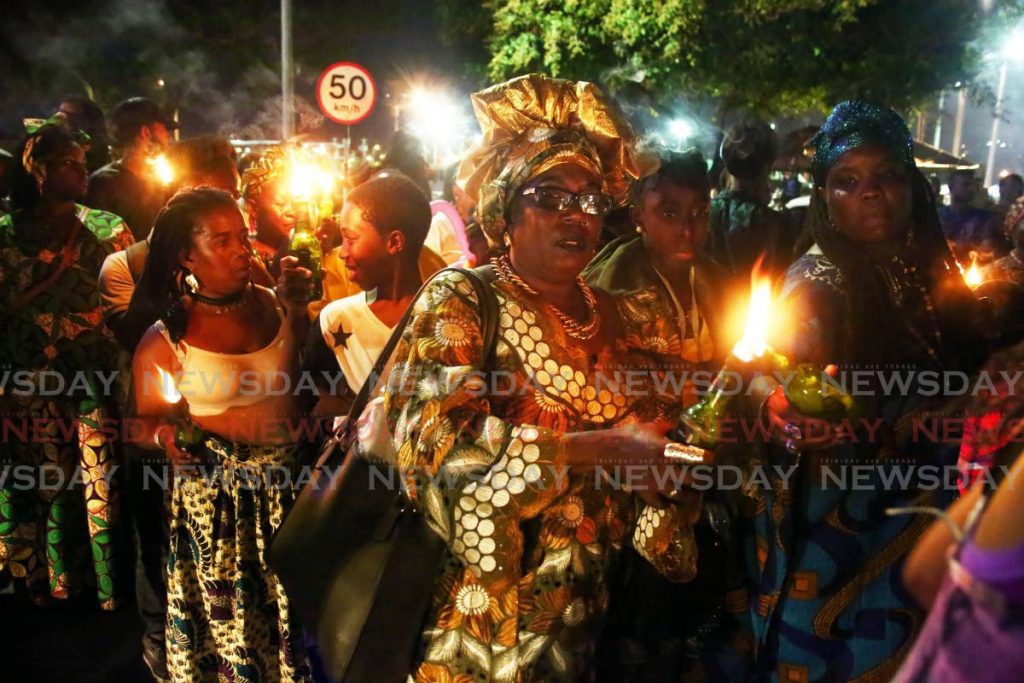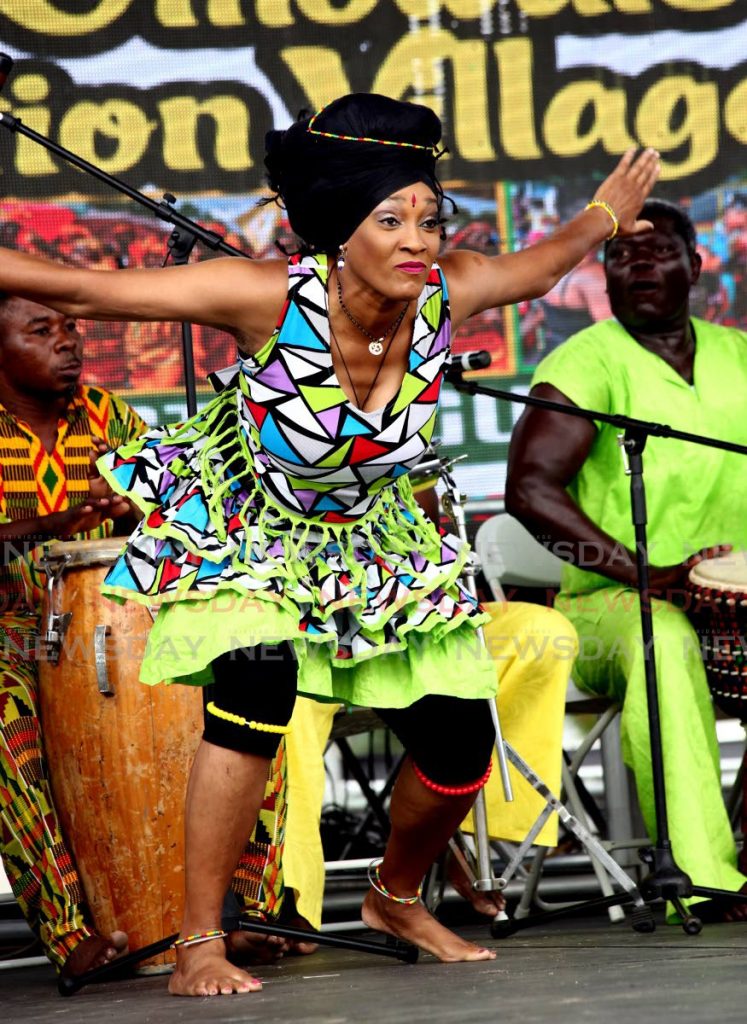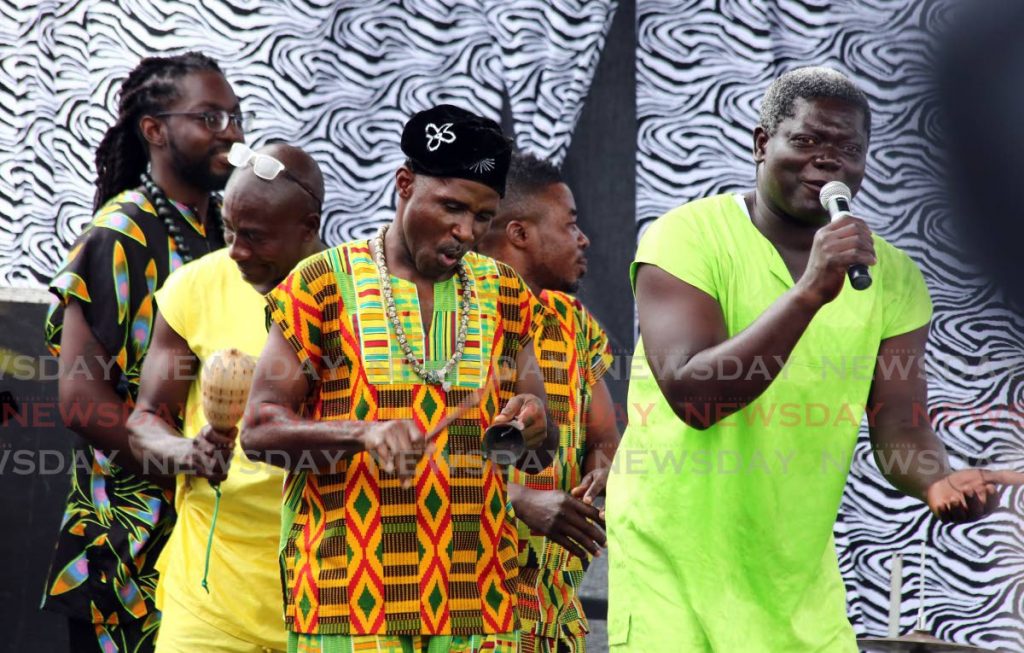Emancipation celebrations move online

NORMALLY, the drums would have been out. People would have been moving freely in the Lidj Yasu Omowale Emancipation Village. Discussions would have been ongoing. But it is safe to say that 2020 has been less than “normal” and the new normal has shifted events to the virtual space.
This year’s Emancipation celebrations have also moved online.
The Emancipation Support Committee of TT (ESCTT) executive chairman, Zakiya Uzoma-Wadada, said to Newsday the decision not to have a physical celebration was taken early in the year.
“We have maintained that position. Because even though there has been some lifting of the restrictions, we still do not think that encouraging thousands of people to gather...it is going to be hard to keep those people in groups of 25.”
The only physical event the committee plans to host over the Emancipation weekend is the possible unveiling of a monument done in collaboration with the Office of the Prime Minister.

Uzoma-Wadada said the monument will be a tribute to the triumph over enslavement and will be placed in front of the Treasury Building, Independence Square, Port of Spain.
However, it is still to be confirmed.
But the committee hopes all things work well to have it completed for Emancipation morning on August 1.
If it does come off people would be invited and there would be a ceremony for about 90 minutes.
From July 31-August 2 the ESCTT will instead host a series of virtual events in commemoration of the annual event.
On July 31 there will be a virtual youth reggae concert in tribute to local reggae star Taurean “Zion Starr” Taylor who died last year. She said the young reggae artiste performed at the committee’s concerts over the years.
“This concert is very special to us and his son will be performing, who is now calling himself Rising Star. We will be giving his family an award in recognition of Zion Starr’s contribution to the culture.”
On Emancipation Day a series of events will take place; from virtual drum calls, to images of past street processions and a virtual calypso concert.

The calypso concert will feature songs in commemoration of the 1970 Black Power Revolution. There will also be educational programmes on state-owned television, TTT.
From 7 pm there will be a virtual flambeau procession and people will be asked to do the same in their respective communities.
On August 2, the ESCTT will host a virtual jazz and pan concert featuring Vaughnette Bigford and her band, pannist Dane Gulston, and Panorama champions, Desperadoes.
It also plans to host a virtual trade exhibition on July 25 to give the committee’s entrepreneurs, who usually participate in the Lidj Yasu Omowale Emancipation Village, a chance to “highlight their products online.”
She said if November there is increased release of the restrictions, a physical Emancipation market might be done.
She said November is considered African history month.
The committee, in the build up to Emancipation, has hosted a number of online events including its annual Kwame Ture Lecture Series.

The committee did not think, given the health considerations and economic factors, that the society was ready for the hosting of physical events.
Even from an economic standpoint the committee did not think it would be economically viable for the entrepreneurs as the country tries to recover.
There were wider considerations about hosting a physical parade such as how does one manage a smaller parade or who do you tell not to come?
“We do think in the interest of health and being compliant with the instructions that continue to be given, is the responsible thing for us to do (not host a physical parade).”
Uzoma-Wadada said the people have bought into the committee’s virtual events.
“I think people were really happy that we remained committed to doing something. One of the advantages of being online is that you are able to reach so many more people. So whereas we would have had a lecture at Central Bank Auditorium and we would have got maybe about 200 to 300 people to attend. But online, it has attracted 9,000 views. You have a drum festival, where, online, 12,000 people have seen us and the reach is even more…”
She said while the virtual road has been challenging for them as it is an area in which the committee does not have expertise, it was happy as it gave the festival a “bigger outreach.”
It partnered with the University of the West Indies’ (UWI) Open Campus to put on the virtual events.
The ECSTT plans to continue hosting virtual events even when it returns to physical events next year.
Uzoma-Wadada said virtual events provided an excellent opportunity to promote not only the organisation and the festival but also the country.
Over the years, the committee had some financial issues in hosting the festival but this year there has been a reduction in the original budget by more than 50 per cent in hosting the event.
While this is so she does not want people to underestimate the cost of hosting virtual events.
“You do not have to pay for the physical activity but you still have to pay the artiste who perform in the event; and the videography and recording. You still have to promote it. You still have to prepare promotional material. You still have to pay a videographer.”
She said besides the lectures which are live, all of the other events were pre-recorded and packaged so that “we can have a good programme and then premiere it on Facebook.”
The Ministry of Community Development, Culture and the Arts has agreed to give the ESCTT some financial support although it has not received it as yet.
Besides the pandemic, 2020 has been an interesting year for movements with the global Black Lives Matter movement prominent among them.
This year, the ESCTT celebrated the 50th anniversary of the Black Power Movement and “it was an extremely important year for us because we thought we did make some gains following the revolution.
“But we still think there are some serious issues in the society that still need to be addressed,” she said.
She said there was a particular energy that took place not just in the US but globally this year.
“It is not only the 50th anniversary of the Black Power movement in this country but also a similar time frame with similar movements in the US. We are also beginning the second half of the decade for the people of African Descent. An international decade that has not seen the kind of attention nationally or regionally or internationally.”
Uzoma-Wadada said it was really, really significant that there was an eruption of concern about institutional racism, white supremacy and how these things were still impacting the lives of African people and non-Caucasian wherever they are found.
She said it means now that young people realise there is a need to continue to be vigilant and there is still a need to address how we respond and how institutions respond to non-Caucasian people in a society.


Comments
"Emancipation celebrations move online"